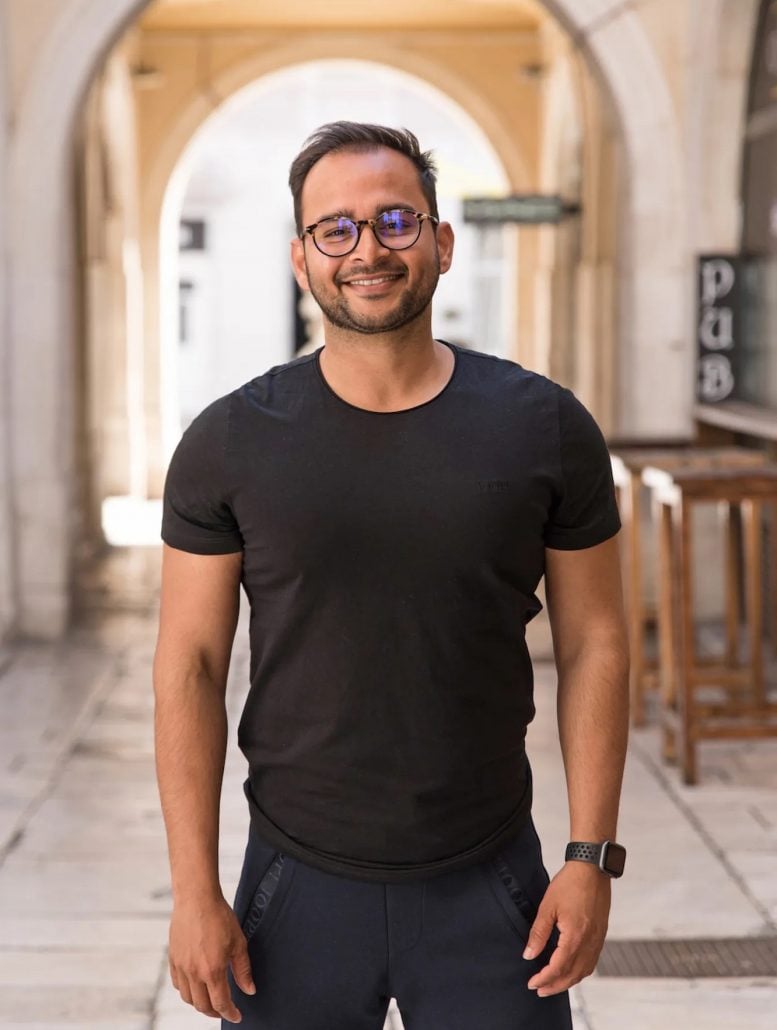Horizon Media CEO Bill Koenigsberg on succession plans, account reviews and state of digital ad dollars
Facing a big review with Geico, Koenigsberg talks about agency's changes, future of retail media networks and why reviews are often a mistake.

When you’ve got the biggest independent media agency in the U.S., in a world where most big media agencies are owned by even bigger holding companies, people are always watching—either to buy your business or take it away.
Bill Koenigsberg, CEO of Horizon Media, who founded the agency in 1989, is used to that by now. But even by the standards of a media industry in constant flux, he’s in the midst of a lot of change.
In the past year, Koenigsberg has seen the agency's biggest account—Geico—go into review; divested a stake in another agency, Canvas; picked up two major new global minority investors in Temasek and LionTree; hired two prominent executives in David Levy and Momentum CEO Chris Weil to lead a new Horizon Sports & Experiences unit; picked up several new accounts; and seen the long rapid growth of digital media hit a massive speed bump.
In this edited interview with Ad Age, Koenigsberg addressed how he sees some of these forces reshaping the business—and his agency—including how procurement and consultant-driven reviews are sometimes leading to client regrets, where all that digital money is going, and Horizon's succession plans. He declined to comment on the Geico review.
You’ve had a lot of moving parts the past year with the Canvas divestiture, the minority stakes from Temasek and LionTree. Where is all this going? Is this on the way to becoming a global company or participating in more global reviews?
The Canvas situation was one where philosophically we were not in the same camp. I like to run fast and move quickly, and I didn't feel strategically we were aligned ,and didn't think that was my lifeline to another network for the future.
With regard to Temasek, I've been thinking about for years strategically, where do I go? Do I stay the course? Am I better off under a holding company umbrella? Do I take the company public? Or what opportunity I see in the marketplace to maybe even accelerate even faster with a great strategic partner And I decided that it made sense to look for an amazing strategic partner who could do [a few] things for me: One, someone who had significant commercial relationships, and Temasek has about $400 billion under asset management. They own pieces of a lot of the companies that I work for, and they have huge tentacles into so many other companies. The second is that I have not built Horizon through acquisition, and I felt that there was going to be an opportunity for more strategic acquisitions in the future. And I don't have a strong corporate development group, so I wanted somebody who can help me big time in that in that area. And we actually over the last year, made two acquisitions; we made offers for three other companies. So they’ve helped me a lot from an M&A perspective. The third is additional strategic thinking. They [Temasek] own some marketing services entities; they own a big piece of CAA [Creative Artists Agency]. So some real additional strategic thinking for me, which was really important, and global perspective, which they brought.
Could they buy the whole thing at some time? Do they want to go bigger into this space? And I am their entree into this space? Do we decide that it makes sense to go public? I would say I’m lukewarm on that because I think there are advantages to being private.
Having someone like a LionTree, who has their fingers into the media and technology and digital worlds, and someone like Temasek, with this huge global perspective, I couldn't be more thrilled with them as partners.
What does formation of Horizon Sports & Experiences mean?
We launched Scout about 12 years ago—sports marketing, entertainment, event. And it certainly has grown into a nice company. But as I'm always thinking about where there are bigger opportunities in the world, I really felt that there was an opportunity in the whole sports landscape, the advisory landscape, the experiential landscape, to grow the business, broader and significantly quicker, either through an acquisition, or could I potentially strike lightning with the right talent to help take this to the next level?
And opportunity came about with both David Levy, who had his sports advisory firm, and Chris Weil, who I've known and respected for years, who built Momentum into the best experiential agency in the world. We started to have some conversations about where the world is going with the metaverse and experiential, with sports in name image and likeness and sponsorship and owning IP. And the more we started to talk about it, the more the three of us got excited about merging Scout into a new company that could offer up a much broader plate of services to grow clients' businesses.
Do you have a succession plan?
We're about 2,700 people right now. I have amazing practice leads across the organization and my hope is within the next year to anoint a successor who will absolutely be taking over for me as CEO eventually here. Both inside and outside are being looked at right now.
There seem to be a number of players from overseas, not necessarily the traditional holding companies, looking to make moves in the U.S.
There are also some performance-only agencies out there that have made some some pretty good traction [such as PMG]. Also You and Mr. Jones [now Brandtech Group], and the stuff that [Martin] Sorrell is doing.
They handle one slice of the pie. Performance is really important. I like to think of it as brand-formance. The clients want both brand and performance. And our clients want more of an integrated solution. That's the song that we're singing in terms of integration of where the world is going because I don't think it's one or the other.
We've had three clients now in the last year where we didn't win the business. And each one of them now has come back to us. We're about to win one of them. One of them changed their mind and came back to us. And the third just reached out and said we want to talk to you guys, which we find fascinating.
Can you tell me more about some of these pickups?
This year, BlueTriton, Live Nation, Kohl’s, Lionsgate, Glanbia, Noom, Impossible Foods. We’ve had some real positive momentum.
The fact of life is procurement, mandatory reviews. That’s the world that we live in. Consultants are constantly knocking on clients’ doors saying, “Hey, you know it’s time to take a look.” That’s the bad side of the business, because to me magic happens when you build long-term relationships and trust. And I know there’s a big fiduciary responsibility. Do not take that for granted. So, you know, do some auditing, which clients should do. But [be aware of] the amount of effort and time it takes to re-educate an agency and partners, and the disruption and the change.
This piece of business that left us a little while ago, my understanding is, it’s a disaster. And we knew it was going to be a disaster. And it’s unfortunate. I’m big on building 10-, 15-, 20-year relationships. Unfortunately, as you know, a CMO doesn’t last that long.
Related: Geico puts media account into review
How else do you see dynamics of client-agency relationships changing?
As you know, more business has moved in-house to clients. It’s interesting that some is moving back out of house. Today there’s much more shared responsibility. We’re working with a client right now who’s doing everything in-house and we are co-collaborators on almost everything they’re doing, including co-negotiation of deals.
With the recent slowing or decline of revenue for some of the big digital players, what’s behind that and where do you think the money is going?
I think we're seeing a huge shift to the retail networks. One, that's absolutely where the money is moving—the Walmarts, the Costcos, the Amazons—the fact that you're right at the point of purchase, at the time of purchase. They're getting a lot more sophisticated with their own data, with the ability to optimize on those platforms, which you haven't had before. We've got a proprietary tool that we're using for that, and we're seeing more and more dollars move to the retail networks. And I think the platforms are taking the brunt of that.
I also think that if you look at all streaming capability, AVOD supported capability, that's got to be sucking money away from Google and YouTube and probably Amazon as well.
I think money has absolutely shifted into more diverse audiences, which is terrific. I loved [Procter & Gamble Co.’ Chief Brand Officer] Marc Pritchard’s comment that this shouldn't be [about multicultural and general market] anymore. It's all a general market. When you think about [TelevisaUnivision’s] increase in share, BET’s increase, and Byron Allen's money is coming from someplace.
So you put you put those pieces together, that's sucking the money away.
How much concern do you see from clients about recession, and how are they planning for it?
It's not just recession. It’s also inflation, supply chain, consumer behavior. And when I talk about consumer behavior—wants and needs of consumers are changing. As pocketbooks get squeezed, consumers have to make choices. In the past, I'll give you a perfect example, vacation might be a want. In today's stressful world, vacation is actually a need. So they're trading certain wants and needs in terms of how they spend their disposable income. Understanding messaging in that environment, I think is critical as well.
I think clients are extremely concerned. I was at a conference two weeks ago with 10 of the top global CMOs in the world, a small group of people, and we all went around the room, about about what's going on in the world. And to a person, each one of them said, if you think you know what the future is holding, you're crazy. Nobody knows. None of them know. So I think that uncertainty is creating extreme anxiety, and with that is coming, I would say, a lot of scenario planning.

 MikeTyes
MikeTyes 
































